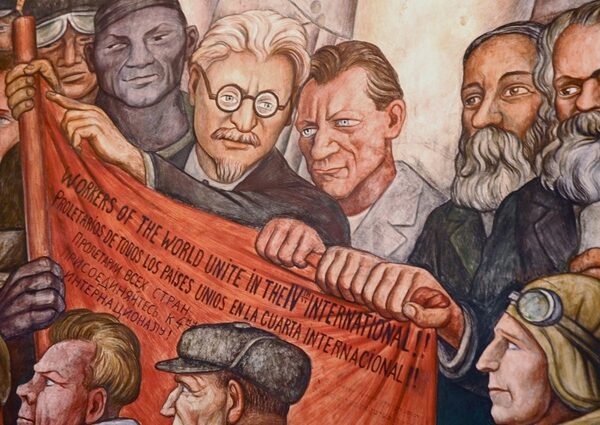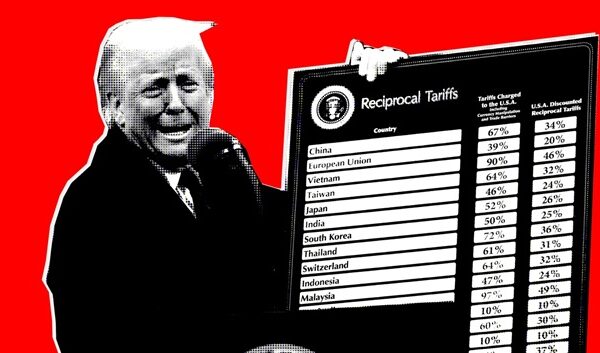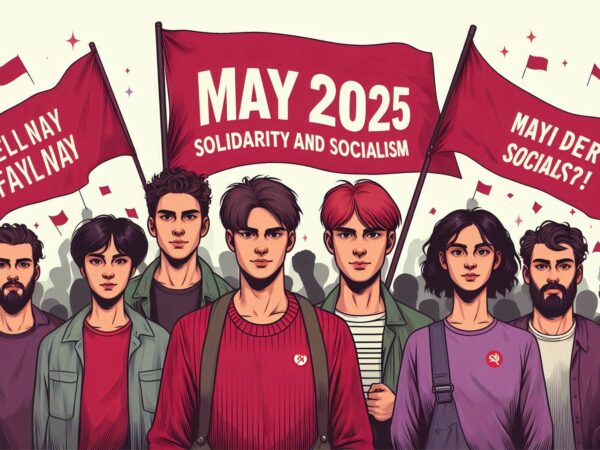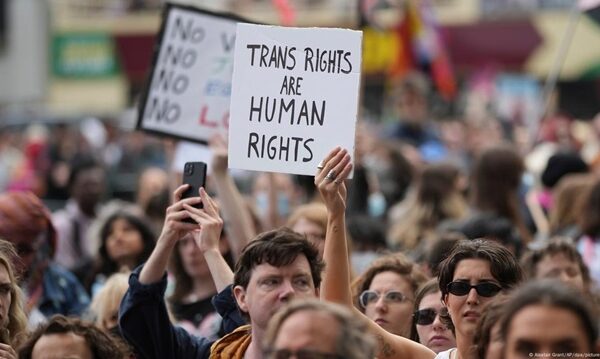
Starmer’s Britain – a spectral nightmare of racism, misogyny and transphobia
By Paul Moorhouse PRMI in Scotland. 27 May 2025 11 months ago British voters decisively voted to reject the increasingly crisis ridden right-wing Tory party which

By Paul Moorhouse PRMI in Scotland. 27 May 2025 11 months ago British voters decisively voted to reject the increasingly crisis ridden right-wing Tory party which

By Laura Fitzgerald, Socialist Party Ireland. 22 May 2025 This article was first published in ‘Socialist Alternative’ № 19, magazine of the Socialist Party Ireland

By Ann-Katrin Orr, Socialist Party Ireland. 22 May 2025 On Saturday, 17 May, Belfast was filled with a 3,000–strong March for Trans Rights. It was

As the anniversary of the end of World War Two is celebrated, the world’s leaders are again recruiting soldiers and arming them with horrific new weapons in preparation for new conflicts, and possibly yet another, even more brutal world war.
This article examines how Trotskyists worldwide struggled, ‘despite all hazards’, to build the slender forces of the Fourth International (FI), intended to assist the working class to overthrow capitalism, and the bureaucratic, Stalinist elite in the USSR and replace them by genuinely democratic, international socialism to end poverty and war forever.

By Sam Casey, Socialist Party, Ireland 6 May 2025 The popular Apple TV series Severance recently returned for its second season. One of the most watched shows

By Conor Murray, Socialist Party Ireland. 6 May 2025 What is a tariff? A tariff is a tax on importing goods from abroad. The tax

By Socialist Struggle India, 30 April 2025 The Indian subcontinent once again stands on the brink of catastrophe. With the Pakistani military alleging “credible intelligence”

By PRMI reporters 30 April 2025 May Day 2025 follows the completion of the first 100 days Trump 2.0. It has seen a relentless barrage

By Finghín Kelly, Socialist Party Ireland. 28 April 2025 Trump’s so-called “liberation day” announcement, massively jacking up tariffs on goods entering the United States, was

By Ollie Bell, Socialist Party Ireland 28 April 2025 Outside the steps of the UK Supreme Court, bottles of champagne were popped by For Women

By Socialist Struggle India, 28 April 2025 For all the talk of India’s “strategic autonomy”, Trump’s display of raw power on the global stage in

By Liv Shange Moyo PRMI in Sweden. 16 April 2025 Two years of civil war between the RSF and the SAF – two counter-revolutionary forces